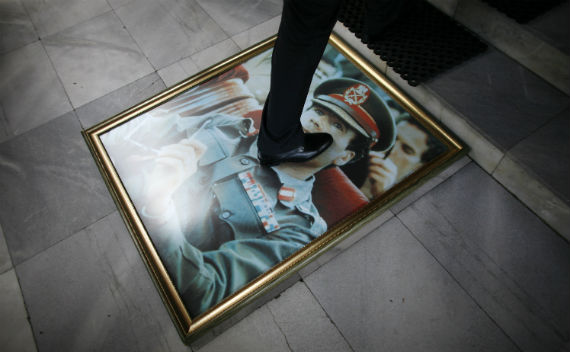Libya and the International Community After Qaddafi
More on:

CFR.org just posted a short video interview I did on what Qaddafi’s death means for Libya and beyond. To watch this video on YouTube, please click here. Several points I would highlight:
Qaddafi’s death is a mixed blessing for Libyans. It conclusively ends his more than forty year rule and opens up a new chapter for Libya. But it also robs the country of the opportunity of having him stand before his accusers, either in Tripoli or at the International Criminal Court, for the myriad crimes he committed. His bloody death could also make him a martyr down the road, particularly if Libya fails to make the transition to a better country for its people.
Libya now faces a tremendous challenge. It must unite around a new regime and instill order and stability. The country lacks real institutions--Qaddafi was the state--and there is no unified military that can bring order and stability to the country, at least in the short term.
Having intervened in Libya to protect civilians and then topple Qaddafi through United Nations Security Council Resolution 1973, the international community, and especially the western powers that intervened militarily in Libya, now have a responsibility to help support Libya’s transition to a more liberal and peaceful order. Continued international engagement and support for a peaceful post-conflict Libya will send an important positive message to the rest of the region that what matters is what happens after tyrants fall.
Should the international community now walk away from Libya, it risks leaving a failed state in its wake that could be a haven to Islamist radicals and other extremist forces. It could also inadvertently send the signal to many would-be activists seeking change within the Arab world that they should not take risks, lest future chaos and violence turn out to be worse than the stable autocrats they know.
More on:
 Online Store
Online Store
